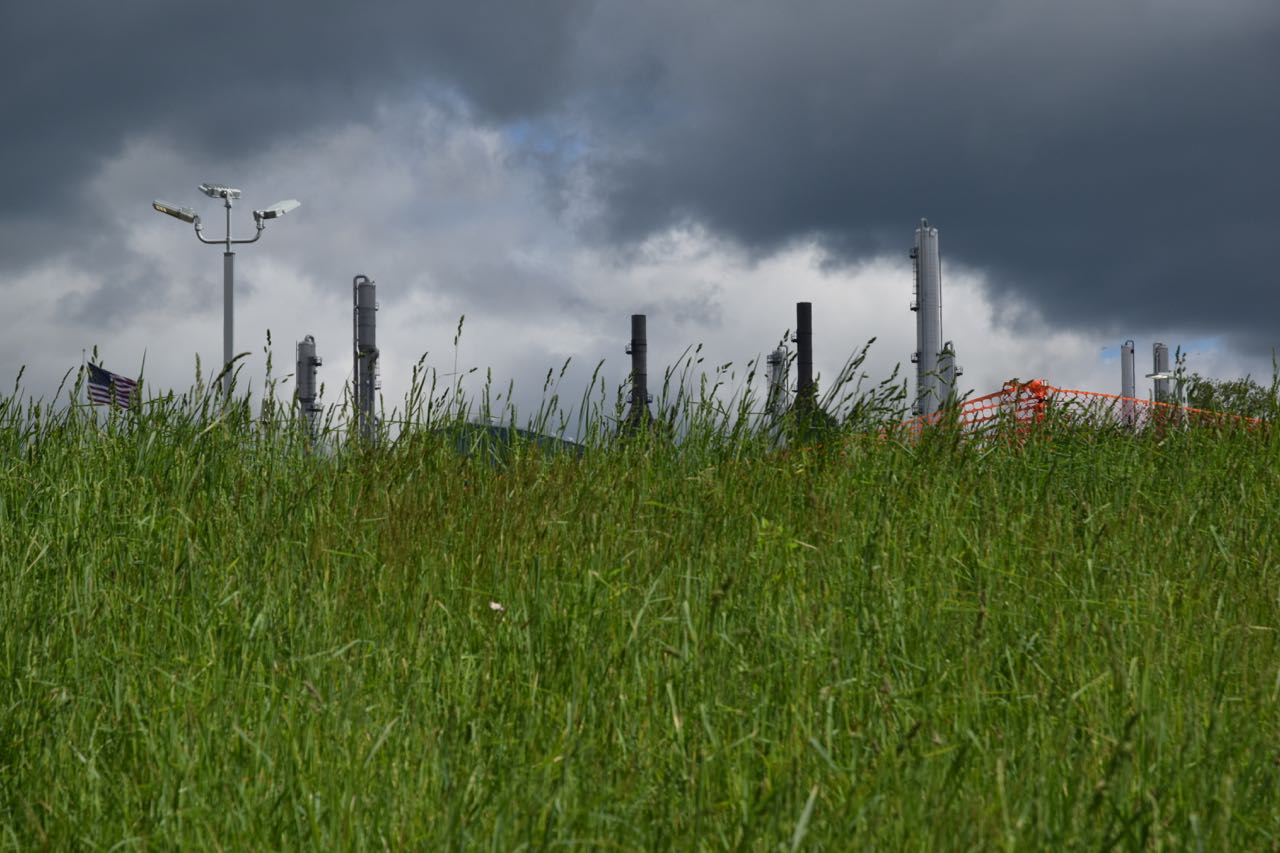The Scottish Government has announced an “immediate, effective ban” on fracking, spelling an end to industry’s bid to drill for shale gas under large swathes of central Scotland.
In a long-awaited statement, energy minister Paul Wheelhouse said that he was exercising planning powers to ensure that no permission would be given to any fracking developments “indefinitely”.
This was because of concerns about health impacts and climate pollution, he said. It was also because there was no ”social licence” for the technology in the 13 council areas that would be most impacted.
There had been 60,535 responses to the government’s recent consultation on fracking, the second highest ever received. According to Wheelhouse, 99 per cent were opposed to fracking, with about two-thirds from the affected areas.
“The conclusion of the Scottish Government is that we will not support the development of unconventional oil and gas in Scotland,” the minister said.
“To put this position into immediate effect, we have today written to local authorities across Scotland to make clear that the directions that gave effect to the moratorium will remain in place indefinitely.”
He added: “This action is sufficient to effectively ban the development of unconventional oil and gas extraction in Scotland”. It meant “fracking cannot and will not take place in Scotland.”
The ban, which replaces a moratorium in effect since January 2015, falls short of a full legislative ban that some had been campaigning for. Both Scottish Labour and the Greens criticised the ban for not going far enough.
Wheelhouse, however, argued that a planning ban was quicker and effective. It would be similar to the SNP government’s long term ban on the building of any nuclear power stations in Scotland, he said.
The decision will be debated by the Scottish Parliament, and will also have to be subject to an environmental impact assessment. “The people have spoken,” Wheelhouse said. “The time has come to move on.”
The ban was enthusiastically welcomed by environmental groups. “This is a victory for the environment and for local communities fighting fracking,” said Mary Church, head of campaigns at Friends of the Earth Scotland.
“This is a huge win for the anti-fracking movement, particularly for those on the frontline of this dirty industry here in Scotland, who have been working for a ban these last six years.”
She urged ministers to go further by passing a law to ban the fracking industry for good, as other countries and regions have done. But she accepted that might have to wait until after onshore oil and gas licensing powers had been transferred to Holyrood from Westminster.
Church called on opposition parties to work for a legislative ban. “Legislating to ban fracking provides the strongest protection for communities and the environment, and sends a clear message about the need to leave fossil fuels in the ground in the fight against climate change,” she added.
Stewart Kirkpatrick of campaign group 38 Degrees, said: “This is a victory for people power. Tens of thousands of us across Scotland have joined together with local and national organisations to stand together and tell the Scottish Government to shut the door on this risky form of dirty energy.”
Dr Sam Gardner, the acting director of WWF Scotland said: “It’s excellent news the Scottish Government has listened to the thousands of people, campaigners, and politicians across the country who have been calling for a permanent ban to fracking.”
The climate science was clear, he argued. “The vast majority of fossil fuel reserves need to be left in the ground,” he added. “It’s fantastic Scottish Ministers agree that we need to start placing them off limits.”
The shale gas industry, however, reacted angrily to the ban, pointing out that Scotland will miss out on 3,100 jobs. The Grangemouth petrochemical giant, Ineos, has applied for most licences to frack Scotland’s central belt.
“It is a sad day for those of us who believe in evidence-led decision making,” said Ineos Shale operations director, Tom Pickering.
“The Scottish Government has turned its back on a potential manufacturing and jobs renaissance and lessened Scottish academia’s place in the world by ignoring its findings.”
The Scottish Government’s move would send a negative message to future investors in Scotland, he argued. “Today’s decision is a slight on the dedicated professionalism that Scottish workers have pioneered in the North Sea.”
He added: “We lead the world in exploration safety, but I fear we will start to see large numbers of Scottish workers leaving the country to find work as the North Sea oil and gas industry continues to decline.”
Ken Cronin, chief executive of the industry group UK Onshore Oil and Gas, accused the government of ignoring the advice of its own independent experts. “This is a poor decision, ignoring Scotland’s rich heritage and expertise in oil and gas,” he said.
“It is not based on the evidence from extensive independent research, which clearly states that with appropriate regulatory oversight and monitoring Scotland’s regulatory framework is sufficiently robust to manage onshore exploration and production.”
He added: “Currently over 50 per cent of that gas is imported into the UK and set to rise significantly over the next few years. There is no viable or affordable alternative to Scottish natural gas from shale other than importing significant quantities of gas.”
Significant benefits from shale production would now be lost, Cronin warned. “This is a decision that is based on dogma not evidence or geo-political reality.”
In 2016, the Ferret ran an in-depth investigation into fracking, following a successful crowdfunding campaign. You can find all of our fracking stories in our archive. Please consider subscribing to The Ferret so we can continue to bring you more in depth environmental reporting.














